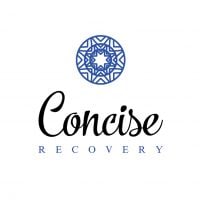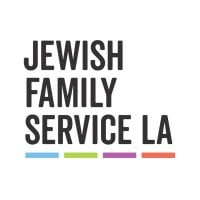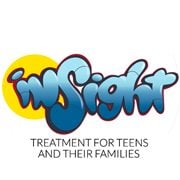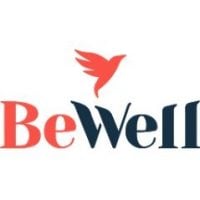Child and Family Guidance Center
Drug Rehab Center in Los Angeles, California
- Mental Health
- Dual Diagnosis
The Child and Family Guidance Center in Los Angeles offers evidence-based treatment programs and holistic healthcare services tailored to meet individual needs for those seeking sobriety and struggling with mental health issues and dual diagnoses.
About This California Facility
Child and Family Guidance Center is a Dual Diagnosis, Mental Health Treatment Facility located in Los Angeles, California. Their focus is on providing treatment for individuals suffering from both a mental health disorder and addiction. As a provider of outpatient services, they offer flexible care options that allow individuals to receive treatment while still maintaining their daily routines. Child and Family Guidance Center is dedicated to helping individuals on their journey to sobriety and overall mental well-being.
Child and Family Guidance Center offers a range of services and treatment methods to address addiction and substance abuse in individuals. Their approach is tailored to meet each individual's unique needs and encompasses various evidence-based therapies, counseling sessions, and support groups. The facility emphasizes the importance of addressing both mental health and addiction simultaneously, offering dual-diagnosis levels of care. Through their comprehensive treatment programs, individuals can gain valuable insights, develop coping strategies, and receive ongoing support to overcome addiction and achieve lasting recovery.
Genders
Ages
Modality
Additional
Conditions and Issues Treated
There are different kinds of Dual Diagnosis:. A person who simultaneously experiences both a mental illness and an addiction disorder. Or, a person who experiences one or more coexisting (simultaneous) mental health conditions in addition to a primary substance use disorder.
The treatment requires a multi-disciplinary approach, it’s crucial for individuals to partner up with a healthcare provider who understands all the recovery components.
Levels of Care Offered at Child and Family Guidance Center
This center offers a variety of custom treatment tailored to individual recovery. Currently available are Dual-Diagnosis, Outpatient, with additional therapies available as listed below.
The outpatient programs in Los Angeles, CA are for those addicted drugs or alcohol. The goal of the outpatient rehabilitation program is to make them stop abusing drugs or alcohol, reduce drug use or addictive behaviors, and become entirely sober. It is generally required to attend the outpatient program for 10-12 hours every week.
Patients can be administered on-the-spot medication to ease withdrawal symptoms such as anxiety, increased heart rate, and even depression. Groups such as Alcoholics Anonymous (AA) and Narcotics Anonymous (NA) can be used as a part of outpatient treatment to help maintain sobriety.
Therapies & Programs
People in addiction recovery can benefit from individual therapy. This type of therapy involves meeting with a therapist one-on-one. This allows for a personal and trusting relationship to be built so that the patient can be truly themselves and express any emotions they feel. Individual therapy leads to greater understanding and peace about your triggers for addiction and coping strategies to prevent relapse.
Couples therapy for drug addiction is based on the belief that addiction is a family disease. Everyone involved with an addict, not just the addict themselves, is affected by their behavior and the changes the addict goes through. The relationship also changes the addict’s significant other and has likely picked up some codependent behaviors. Codependency is a term used to describe a person obsessed with another person and their needs and feelings while neglecting their own. Addicts are usually people-pleasers, so it is understandable how one can become codependent in relationships with addicts.
Family therapy is a type of group problem-solving that aims to improve communication and relationships between the patient, their family, and sometimes friends. The main goal of family therapy for drug addiction is to create an environment where communication can occur without judgment, hostility, or blame. The therapist is with the family as they learn to communicate with each other differently, especially with the addict when s/he is using.
Group therapy sessions are held in rehab facilities, clinics, churches or community centers that offer drug addiction treatment. People who attend these groups are encouraged to voice their feelings and support other addicts in recovery. This helps group members strengthen their own recovery program while cheering on others who are struggling with sobriety.
Group therapy sessions provide recovering addicts with a chance to cope with everyday situations that many face. Group therapy sessions are held in rehab facilities, clinics, churches or community centers that offer drug addiction treatment.
People who attend these groups are encouraged to voice their feelings and support other addicts in recovery. This helps group members strengthen their own recovery program while cheering on others who are struggling with sobriety.
If you’re looking for addiction treatment, it’s important to find a facility that offers trauma therapy. This type of therapy helps people process and understand the past traumas that have led to their addiction. Trauma therapists will work with clients to help them understand their past and present relationships and show them that they are worthy of love. This therapy is typically done using visualization, discussion, and writing down thoughts and feelings.
Trauma Therapy is a form of therapy that involves working with a patient to help them process and understand the past trauma(s) in their life. This therapy is typically done using techniques such as visualization, discussion, and writing down thoughts and feelings. The main goals of trauma therapy is to help clients express their emotions and talk about what they are feeling.
Dialectical Behavior Therapy (DBT) is a form of cognitive-behavioral therapy that helps people understand how they connect their thoughts, behaviors, and feelings. It can give them more control over their actions, effectively stopping self-harm ideations and attempts in some patients. It also helps put those with borderline personality disorder into control for managing mental struggles.
A new study has shown that DBT works for those with self-harm behaviors and addictions by giving them therapy they can relate to and understand.
Cognitive Behavioral Therapy (CBT) helps addicts identify faulty, negative thinking so that they can work together with the therapist to find healthier ways of thinking. CBT focuses on specific aspects of each person’s thinking, feeling, physiology, and behavior. It aims to identify specific problems in these areas, and create a personalized treatment strategy.
Payment Options Accepted
For specific insurance or payment methods please contact us.
Additional Details
Specifics, location, and helpful extra information.
Los Angeles, California 91405 Phone Number(818) 739-5400 Meta DetailsUpdated November 25, 2023
Staff Verified
Patient Reviews
There are no reviews yet. Be the first one to write one.
Los Angeles, California Addiction Information
More than 3 million of California's citizens are addicted to illegal drugs. Almost 800,000 people use hard drugs, almost 5 million use marijuana, and another 2.1 million abuse alcohol every year. Other substance abuse issues such as binge drinking and teen drug use are also common. Many illegal drugs such as cocaine, heroin, methamphetamine, and marijuana are smuggled into the state from Mexico.
10% of adults in Los Angeles have used illicit drugs or abused prescription drugs within the past year. Heroin, marijuana, prescription pain relievers and cocaine are widely abused in Los Angeles. Over 130,000 people in the city struggle with addiction to drugs or alcohol. Many residential rehab facilities in the area can provide long-term care. The best way to find the right treatment option is to speak with a professional.
Treatment in Nearby Cities
- San Mateo, CA (318.6 mi.)
- Carlsbad, CA (95.5 mi.)
- Palmdale, CA (32.5 mi.)
- Downey, CA (25.2 mi.)
- Sanger, CA (184.7 mi.)
Centers near Child and Family Guidance Center
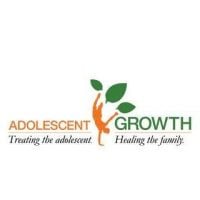
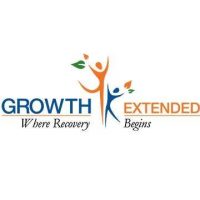

The facility name, logo and brand are the property and registered trademarks of Child and Family Guidance Center, and are being used for identification and informational purposes only. Use of these names, logos and brands shall not imply endorsement. RehabNow.org is not affiliated with or sponsored by Child and Family Guidance Center.

